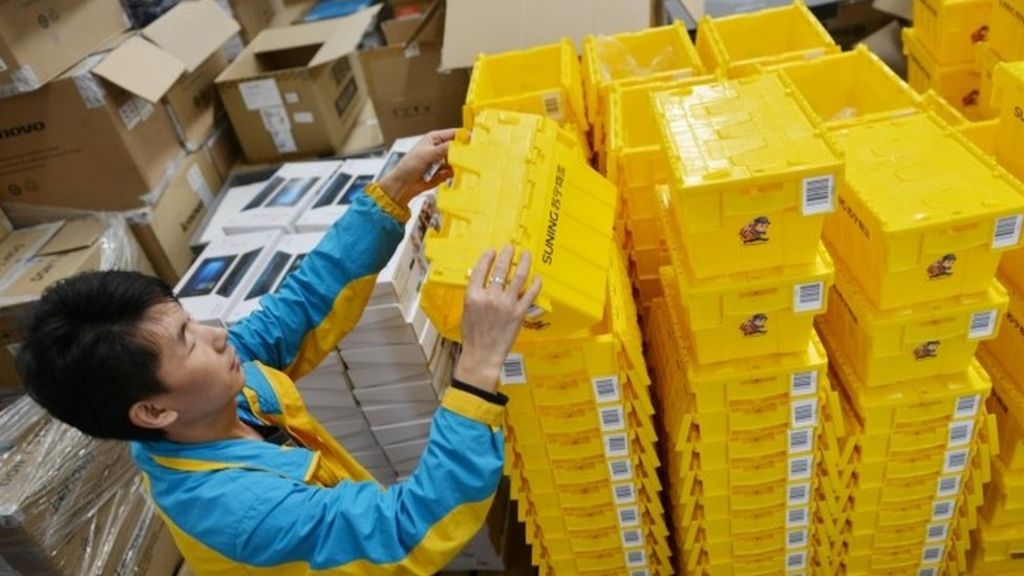China Online Shopping: Dishonest Websites Face Fines

 Image copyright
Reuters
Image copyright
Reuters
China has created a new law to impose heavy fines on internet shopping websites which publish false advertisements about their products.
Vendors who delete negative online reviews or post fake positive reviews face a minimum $30,000 (£23,000) fine.
The new law aims to clean up China's internet shopping websites just before Singles Day - the country's busiest online shopping day of the year.
Last year's Singles Day saw sales worth almost $18bn (£13.7bn) in 24 hours.
Chinese consumers placed 657 million orders.
Most Singles Day vendors sell through the online platform Alibaba, which has been heavily criticised for failing to police the claims some sellers post about their products.
Chinese vendors 'exploiting' African children removed from Taobao
How China's Alibaba wants to change shopping
Singles Day: Alibaba breaks record sales total
Social media in China: how is it different to the West?
The authorities are also trying to stop the use of a technique known as brushing - when vendors stage fictitious sales in order to boost their standing in website search results.
China in August launched a digital "cyber-court" to help deal with a rise in the number of internet-related claims, including online shopping disputes.
Singles Day is held every year on 11 November. The day is also referred to as Double Eleven because of its date.
Originally claimed as a celebration for China's young singletons, Alibaba turned it into a shopping bonanza in 2009.
While Alibaba is undeniably the driving force behind the event, other retailers have also started to piggyback off the idea, including extending it to Hong Kong and Taiwan.
In August Alibaba reported strong earnings, posting a 56% rise in quarterly revenue.
Analysts say that Asia in general and China in particular are at the centre of the global shift towards e-commerce.
From Chip War To Cloud War: The Next Frontier In Global Tech Competition
The global chip war, characterized by intense competition among nations and corporations for supremacy in semiconductor ... Read more
The High Stakes Of Tech Regulation: Security Risks And Market Dynamics
The influence of tech giants in the global economy continues to grow, raising crucial questions about how to balance sec... Read more
The Tyranny Of Instagram Interiors: Why It's Time To Break Free From Algorithm-Driven Aesthetics
Instagram has become a dominant force in shaping interior design trends, offering a seemingly endless stream of inspirat... Read more
The Data Crunch In AI: Strategies For Sustainability
Exploring solutions to the imminent exhaustion of internet data for AI training.As the artificial intelligence (AI) indu... Read more
Google Abandons Four-Year Effort To Remove Cookies From Chrome Browser
After four years of dedicated effort, Google has decided to abandon its plan to remove third-party cookies from its Chro... Read more
LinkedIn Embraces AI And Gamification To Drive User Engagement And Revenue
In an effort to tackle slowing revenue growth and enhance user engagement, LinkedIn is turning to artificial intelligenc... Read more

